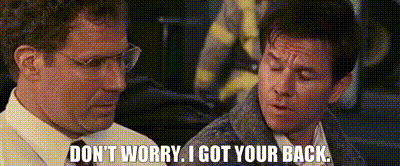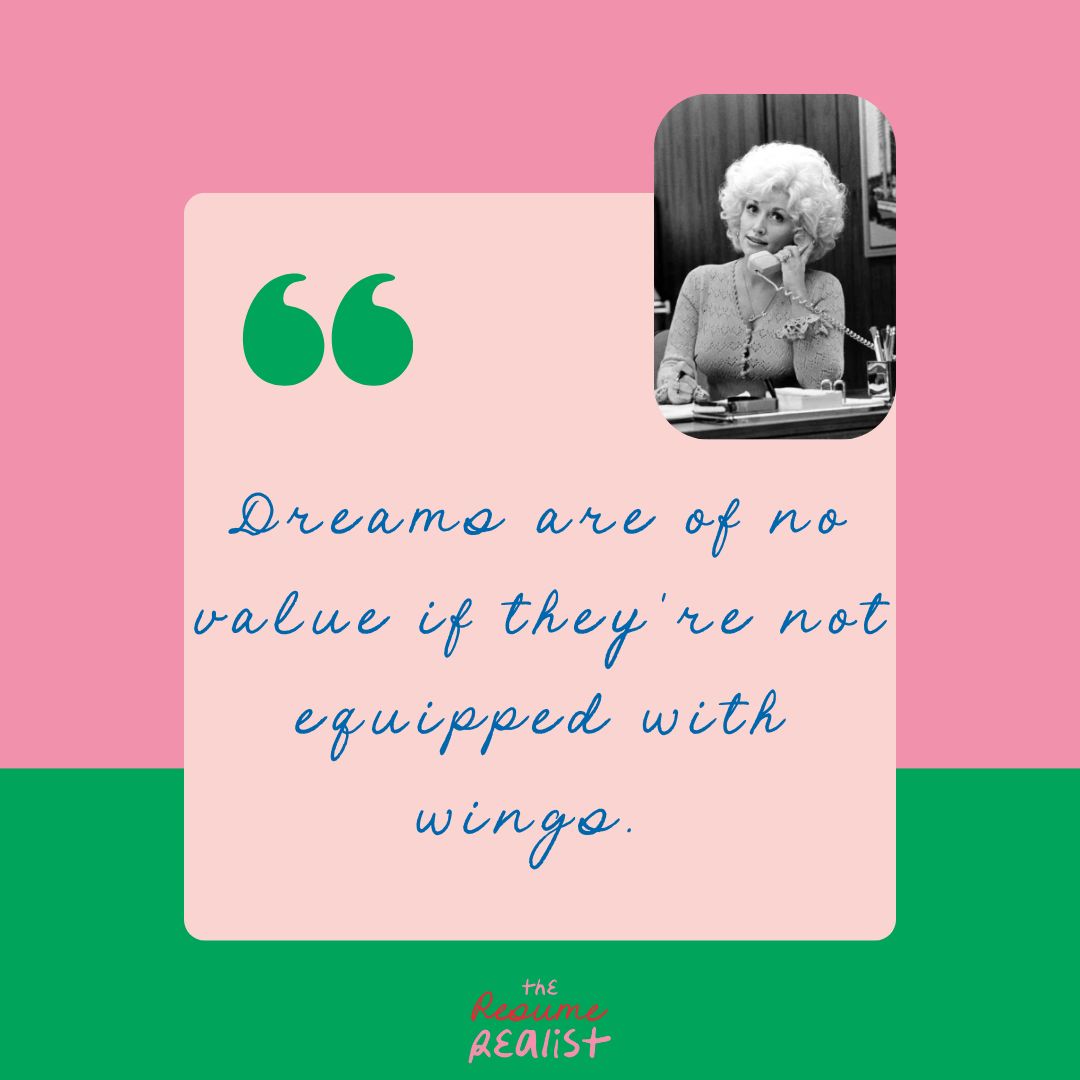
Hi Realists! 👋
Welcome to Cup of Ambition, Volume 12!
In this edition, you’ll get the scoop on:
‼️‼️ 9-to-5 Dilemma:
📌 Mentors vs. Sponsors
🆘 Does Your Brand ADD Value? Behold the YSL Pen.
💗 Need a Speaker?
👋 The New Realist on The Block
9-to-5 Dilemma.
“I applied to (Anonymized University) and they reached out last week for an interview. The HR person was very excited and told me role paid $85-95k, and when I let her know that the salary was too low, she assured me they would pay for the right candidate. I though “GREAT—FINALLY an organization that is really interested in me and recognizes what I bring to the table.”
The HR person then set up an interview with the person who would be my boss, and at the end when I was asking questions, she told me that this was an entry level position (from all the duties listed in the JD, it did not seem to be), I was overqualified, and that there is no way she could go any higher than $75k.
I got a rejection email on Friday. I wasn't surprised, but what happened? Was HR not honest about the range? Did the manager decide they didn’t like me and just wanted me to move on?”
-Confused.
_____________________________________________________
Dear Confused,
Ugh, that sounds frustrating, and I can totally see why you're feeling a bit thrown. There’s nothing worse than thinking a company sees your value, only to have the rug pulled out from under you.
Let’s unpack this:
Internal Disconnects: It’s likely that the HR person and the hiring manager were just not on the same page. This happens more than you’d think, especially when departments don’t communicate well or departments own their budget, but HR sets the range.
HR may have been really excited and genuinely thought they had more flexibility than they did. But when it got down to brass tacks, the hiring manager clearly had different expectations.
Or HR knew there was flexibility in the range, but the manager controls their budget and wants to penny pinch on salary, even though the range allows for increased pay.
Role Confusion: The fact that the hiring manager called the position entry-level, when the job description screamed otherwise, tells me something’s off with how this company defines roles. Unfortunately, this isn’t uncommon, but it does give you an early warning sign about how things might operate there.
The “Right Candidate” Trap: When HR says they’ll "pay for the right candidate," it sounds promising, but unless the hiring manager and the team share that same mindset, it can be just talk. They may have kept you engaged, hoping you’d settle for less—clearly not the case for you, and I love that you held firm on your worth.
What to Take Away:
Gut Check: If something doesn’t feel right in the process—whether it’s the role, salary, or even the vibe—trust your gut. The sooner you can spot a misalignment, the better.
Clarify from the Jump: Going forward, don’t be afraid to pin them down on the details early on. If HR says there’s flexibility, ask if that’s been communicated with the hiring manager. If there’s a gap between what’s said and what’s offered, it’s better to know sooner rather than later.
Right Fit, Not Just Any Fit: This is a great example of why not every “opportunity” is actually right for you. You’re not the wrong candidate—they’re just not the right company for you. Keep pushing for roles that see your value and align with what you deserve.
You dodged a bullet here, and that’s a win. Keep the bar high—you’ll find a company that matches your worth.
Mentors vs. Sponsors: Why You Need Both to Succeed
In today’s work world we hear a lot about the importance of having a mentor. And yes, having someone to provide guidance, advice, and perspective is crucial. But if you’re serious about leveling up in your career, you’ll need more than just a mentor—you’ll need a sponsor too.
So, what’s the difference between the two? And why is it important to have both in your corner?
Mentors: The Trusted Guide
A mentor is someone who helps you navigate your career by offering advice, sharing their own experiences, and helping you develop the skills you need to succeed. Mentors are those people you can turn to for honest feedback and insight—they help you think strategically about your career path.
A mentor might:
Offer advice on how to handle a tricky situation at work.
Share lessons learned from their own career journey.
Help you develop your leadership skills or work through a difficult decision.
Serve as a sounding board when you’re considering your next career move.
Think of a mentor as your trusted guide—someone who helps you reflect, grow, and become better at what you do. They’re the person you go to when you need a perspective shift or want help thinking through your career trajectory. But here’s the catch: a mentor’s role is mainly internal—they help you grow, but they don’t necessarily put you in rooms where decisions are being made about your career.

Sponsors: Your Career Champion
This is where a sponsor comes in. Unlike a mentor, a sponsor isn’t just giving advice—they’re advocating for you, opening doors, and putting their own reputation on the line to help you advance. Sponsors are the people who will talk about your potential in rooms you’re not in, making sure you get those opportunities to shine.
A sponsor might:
Nominate you for a high-visibility project.
Recommend you for a promotion or a leadership role.
Introduce you to influential people in your industry.
Publicly endorse your work and advocate for your next big move.
While a mentor helps you build your skills, a sponsor pushes you forward in your career by creating opportunities and endorsing your abilities. They’re essential when it comes to career advancement because they use their influence and networks to promote your success.

Why You Need Both
So why do you need both a mentor and a sponsor? Let’s break it down:
Career Development (Mentor): A mentor helps you grow and develop as a professional. They provide the long-term career guidance that’s crucial for helping you become more self-aware, improve your skills, and make thoughtful career decisions.
Career Advancement (Sponsor): A sponsor, on the other hand, is critical for getting you where you want to go. They can elevate your career by advocating for you in important circles and ensuring you’re seen and recognized.
If you’re relying solely on a mentor, you may miss out on the high-stakes opportunities that a sponsor can provide. And if you’re counting only on a sponsor, you might lack the self-awareness and skills needed to capitalize on those opportunities. The key is to balance both—to grow with the help of a mentor and advance with the support of a sponsor.
Bottom line: You need both. A mentor to help you sharpen your skills and a sponsor to help you seize opportunities. So if you haven’t already, start looking for these key people in your career—they’ll make all the difference.
Your Brand ADDS Value. Behold the YSL Pen.

Let’s talk about the power of a brand—and why your professional brand is more valuable than you might realize.
Take a look at this pen from Yves Saint Laurent. It’s a Bic pen. Nothing special. Nothing fancy. On its own, it’s just like any other pen you could pick up at the office supply store. But the moment YSL adds their logo to it, the price skyrockets, and suddenly, it’s a luxury item. The function hasn’t changed—it still writes like any other Bic pen. But the perception of value is dramatically different.
The same concept applies to your professional brand.
Your Name Adds Value. Period.
Just like how YSL transforms a basic pen into a status symbol, your name, talent, and personal brand have the power to elevate everything you touch. You can have the same skill set, the same qualifications, and do the same work as the next person—but when your professional brand is clear, consistent, and strong, it sets you apart. It turns your contributions from something ordinary into something exceptional.
Here’s what happens when you focus on building your brand:
Recognition: People begin to associate your name with a certain level of expertise, trustworthiness, or impact. Just like people recognize the YSL logo as a symbol of luxury, your name becomes synonymous with value in your industry.
Perceived Value: Your talent might be similar to others in your field, but your brand—how you show up, the experiences you create, and the stories you tell about your work—elevates how others see your contributions.
Opportunities Multiply: When you have a strong personal brand, doors open that may have been closed before. People seek you out because they recognize the value you bring, not just because of what you do, but because of how you do it.
You Are the Difference.
A lot of professionals overlook the importance of branding, thinking their work will “speak for itself.” But the truth is, you are the differentiator. Just like that YSL pen isn’t really about the ink—it’s about the logo and what it represents—your professional brand isn’t just about the technical skills you have. It’s about what people think and feel when they hear your name.
Building a Brand That Adds Value.
So, how do you start building a brand that adds value? Here are a few key steps:
Be Consistent: Just like YSL never wavers in their branding, your professional brand needs to be consistent. From how you communicate on LinkedIn to the way you present yourself in meetings, consistency helps people recognize and remember you.
Tell Your Story: People connect with stories, not just facts. Share the why behind what you do, how you’ve created impact, and what drives you. This humanizes your brand and makes it relatable.
Highlight Your Unique Value: What’s your equivalent of the YSL logo? Maybe it’s your problem-solving skills, your ability to lead teams, or your creative vision. Whatever it is, make sure you’re showcasing what makes you unique.
The Bottom Line.
Building a professional brand is like putting your logo on everything you do—it increases the value. It’s what makes people sit up, take notice, and want to be part of what you’re creating.
So, don’t just be the Bic pen. Be the YSL pen. Elevate your brand, and watch the opportunities follow.
Invite Me to Speak at Your Next Event!
If you’re part of a planning committee, association, or organizing a conference, I’d love the opportunity to speak to your audience in 2025. My speaking topics are designed to empower professionals to own their stories, take control of their careers, and drive results through self-advocacy and grit. Some of the key areas I cover include:
Self-Advocacy and Grit: Turning ambition into achievement by building confidence, advocating for your worth, and persevering through challenges.
Personal Career Branding: How to develop a brand that positions you as the go-to person in your field, highlighting the unique value only you can offer.
Real-World Career Strategy: Actionable, no-nonsense advice on navigating career transitions, promotions, and leadership growth without the fluff.
With over two decades of experience, I specialize in helping individuals bridge the gap between ambition and achievement, crafting actionable strategies that align personal goals with career success. My talks are engaging, practical, and rooted in real-world experience—leaving your audience inspired and ready to take immediate action.
I’m currently booking speaking opportunities for 2025 and would love to be part of your next event. Let’s connect and I’ll share my Speaker Kit, including more details on my past events, topics, and approach!
Say Hi to The Newest Realist…
Introducing Victoria (aka Tori) McConahay, Design Extern this term from The Modern College of Design.

Tori is almost finished with her degree in Business of Design and will be using her passion for art, imagination, and design across several key projects during her time on the team.
We can't wait to show you the incredible enhancements Tori is making to our client library! 😍
Dollyism.

Don’t Be a Stranger!
Like my content?
Tired of always talking about how much you hate your job anytime you hang out with friends or family?
Think more people need to hear what I say?
3 Ways to Grow Our Networks:
1) Connect with me on LinkedIn!
2) Like, share, and engage with my content across socials.
3) Refer friends and co-workers to subscribe to Cup of Ambition!
3) Refer anyone who tells you they hate their job to me! Refer a new client, spin the prize wheel, and we both win!
4) Recommend me for speaking opportunities within professional networks, community groups, ERG’s, workplace events, or other groups you’re a part of.
If you don’t want Cup of Ambition in your inbox, no worries. Just break my heart 💔 and unsubscribe using the link below.

